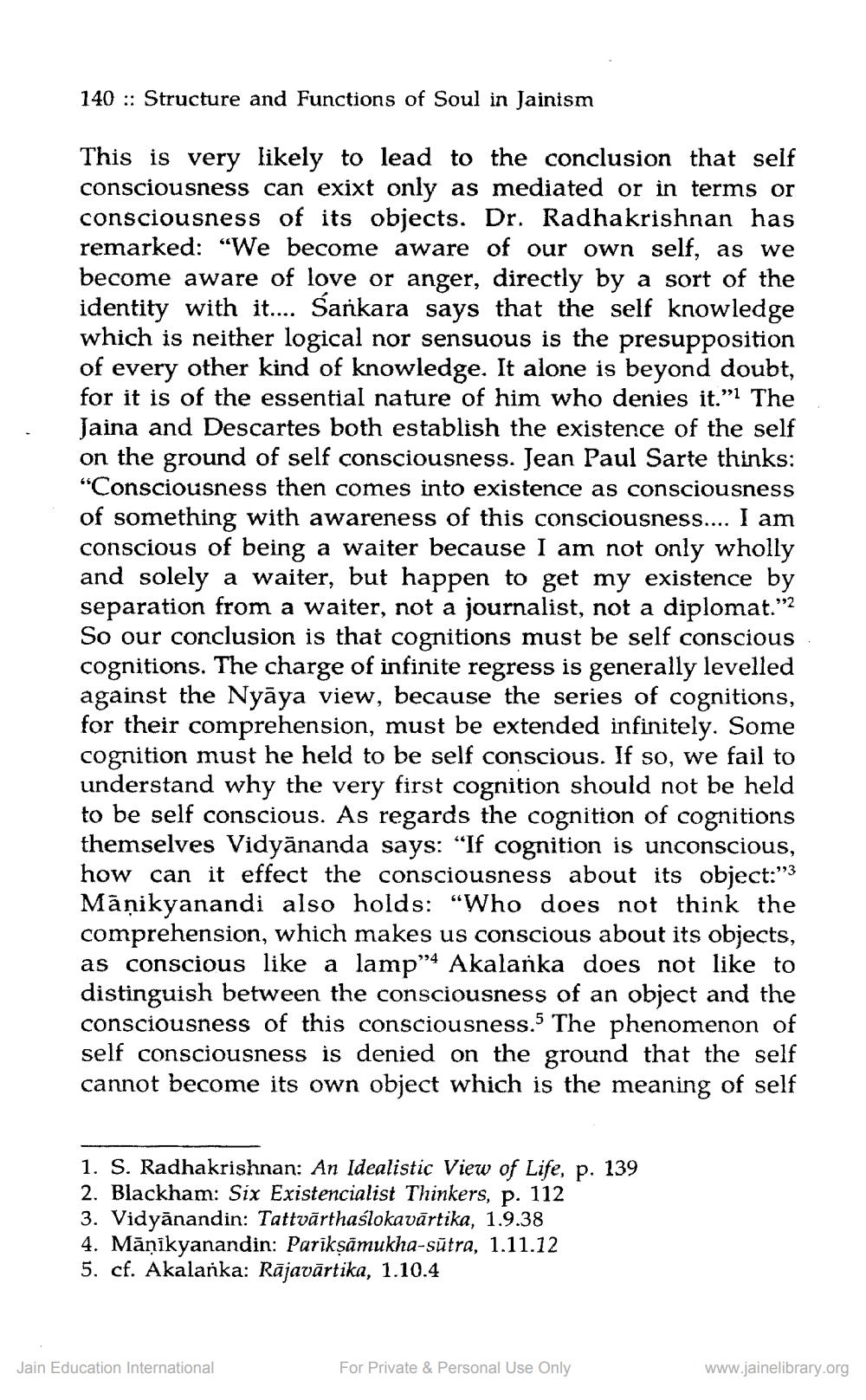________________
140 :: Structure and Functions of Soul in Jainism
This is very likely to lead to the conclusion that self consciousness can exixt only as mediated or in terms or consciousness of its objects. Dr. Radhakrishnan has remarked: “We become aware of our own self, as we become aware of love or anger, directly by a sort of the identity with it.... Sankara says that the self knowledge which is neither logical nor sensuous is the presupposition of every other kind of knowledge. It alone is beyond doubt, for it is of the essential nature of him who denies it."l The Jaina and Descartes both establish the existence of the self on the ground of self consciousness. Jean Paul Sarte thinks: "Consciousness then comes into existence as consciousness of something with awareness of this consciousness.... I am conscious of being a waiter because I am not only wholly and solely a waiter, but happen to get my existence by separation from a waiter, not a journalist, not a diplomat."? So our conclusion is that cognitions must be self conscious cognitions. The charge of infinite regress is generally levelled against the Nyāya view, because the series of cognitions, for their comprehension, must be extended infinitely. Some cognition must he held to be self conscious. If so, we fail to understand why the very first cognition should not be held to be self conscious. As regards the cognition of cognitions themselves Vidyananda says: “If cognition is unconscious, how can it effect the consciousness about its object:""3 Māņikyanandi also holds: “Who does not think the comprehension, which makes us conscious about its objects, as conscious like a lamp”4 Akalanka does not like to distinguish between the consciousness of an object and the consciousness of this consciousness. The phenomenon of self consciousness is denied on the ground that the self cannot become its own object which is the meaning of self
1. S. Radhakrishnan: An Idealistic View of Life, p. 139 2. Blackham: Six Existencialist Thinkers, p. 112 3. Vidyānandin: Tattvārthaslokavārtika, 1.9.38 4. Mānikyanandin: Pariksämukha-sutra, 1.11.12 5. cf. Akalanka: Rājavārtika, 1.10.4
Jain Education International
For Private & Personal Use Only
www.jainelibrary.org




